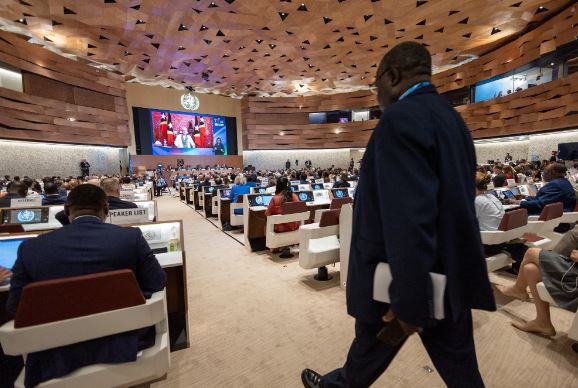Countries around the globe have struggled to reach a consensus on a treaty designed to unify the world in a comprehensive strategy against future pandemics, a critical goal highlighted by the nationalistic responses seen during the Covid-19 pandemic. The deliberations were a key agenda item at the weeklong World Health Assembly meeting in Geneva starting Monday, aiming to address and correct the stark inequities in vaccine and treatment access between wealthier and poorer nations that became glaringly apparent during the Covid crisis.
Despite the diminished urgency surrounding Covid-19 since the treaty negotiations began two years ago, public health experts remain highly aware of the pandemic potential of emerging pathogens, recurring threats such as bird flu and mpox, and even diseases once thought eradicated like smallpox. Loyce Pace, an assistant secretary at the Department of Health and Human Services and the United States liaison to the World Health Organization (WHO), emphasized the proximity of the next potential pandemic, underscoring the critical need for preparedness.
Once adopted, the treaty would establish legally binding policies for WHO member countries, including the United States. These policies would focus on pathogen surveillance, rapid sharing of outbreak data, and the development of local manufacturing and supply chains for vaccines and treatments. Contrary to some political rhetoric in the United States and Britain, the treaty would not empower the WHO to dictate national policies on issues such as masking or use armed forces to enforce lockdowns and vaccine mandates.
The deadline for ratifying the treaty is self-imposed, and some public health experts have suggested it is overly ambitious for such a complex endeavor. Most treaties of this nature take many years to finalize. However, negotiators are eager to ratify the treaty before upcoming elections in the United States and several European countries, which could potentially complicate the process.
One of the most contentious issues in the draft treaty is a section on Pathogen Access and Benefits Sharing. This provision would require countries to promptly share genetic sequences and samples of emerging pathogens, which is essential for the rapid development of diagnostic tests, vaccines, and treatments. Low-income nations, particularly those in Africa, are seeking compensation for sharing this critical information. They demand swift and equitable access to the resulting tests, vaccines, and treatments and ask that pharmaceutical manufacturers share knowledge that would enable local production at lower costs.
So far, WHO member countries have only agreed on one other health treaty: the 2003 Framework Convention on Tobacco Control, which effectively strengthened control over the tobacco industry and reduced smoking rates in participating countries. The devastating impact of the Covid-19 pandemic and the glaring inequities it exposed have driven member states to pursue this second treaty.
In parallel, countries are working to bolster the WHO’s International Health Regulations, last revised in 2005. These regulations set out detailed rules for countries to follow during an outbreak that may cross borders. The Covid-19 pandemic exacerbated the mistrust between wealthier and poorer nations.
The proposed treaty acknowledges that an outbreak anywhere poses a threat globally and that equitable access to vaccines and other resources benefits everyone. The spread of Covid-19 variants from countries with large unvaccinated populations to the rest of the world demonstrated this interconnected risk.
Last month, the Biden administration unveiled its strategy for global health security, focusing on bilateral partnerships to help 50 countries enhance their pandemic response systems. The administration aims to expand this list to 100 countries by the end of the year. American support is expected to help these countries, primarily in Asia and Africa, strengthen their One Health systems and manage outbreaks more effectively.
The deliberations at the World Health Assembly underscore the critical importance of international cooperation and equitable access to healthcare resources in preparing for future pandemics. Despite the challenges, the potential treaty represents a significant step toward a more unified and effective global health strategy.

